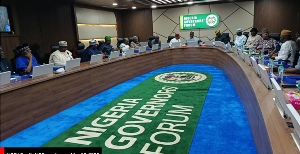The Textiles, Garment and Leather Workers Union (TGLEU) has threatened that if Government fails to impose a ban on the importation of textiles, it would have no option than to take to the streets to register its protest.
The Union has also threatened that if this option fails to yield any fruit it would engineer a private member's motion in Parliament to get the House to come out with legislation to outlaw the importation of textiles into the country.
According to the TGLEU General Secretary, Mr. Abraham Koomson, Nigeria, in its bid to save the textile industry from collapse has taken a bold step by banning textile imports.
He disclosed that Nigeria, again, in its bid to ensure that its textile industry flourishes has decided to give 50% subsidy to the local textile industry which is made up of In-Bond Scheme of 10% and an Export Expansion Grant of 40%.
The TGLEU General Secretary called on Government to emulate the Nigerian example and also save the local textile industry by supporting them with subsidies, failure of which a temporary ban should be placed on textile import.
This, Mr. Koomson stated, would afford the local industries the opportunity to compete with their ECOWAS counterparts in the industry having been offered a level playing field.
The TGLEU General Secretary again noted with regret that due to the influx of imported textiles on the Ghanaian market, local textile industries are collapsing, thus forcing managements to retrench some workers.
Meanwhile, the World Trade Organisation (WTO) has come out strongly against the dumping of goods in other countries, which the organisations say has the potential of killing local industries.
In the view of WTO, it is important for governments to take action to halt dumping of goods, which at times sells at unfairly cheaper price and also called for subsidies and countervailing duties to offset the subsidies.
It also called for the introduction of emergency measures to limit imports temporarily, as a method of safeguarding domestic industries.
General News of Friday, 21 November 2003
Source: The Independent












